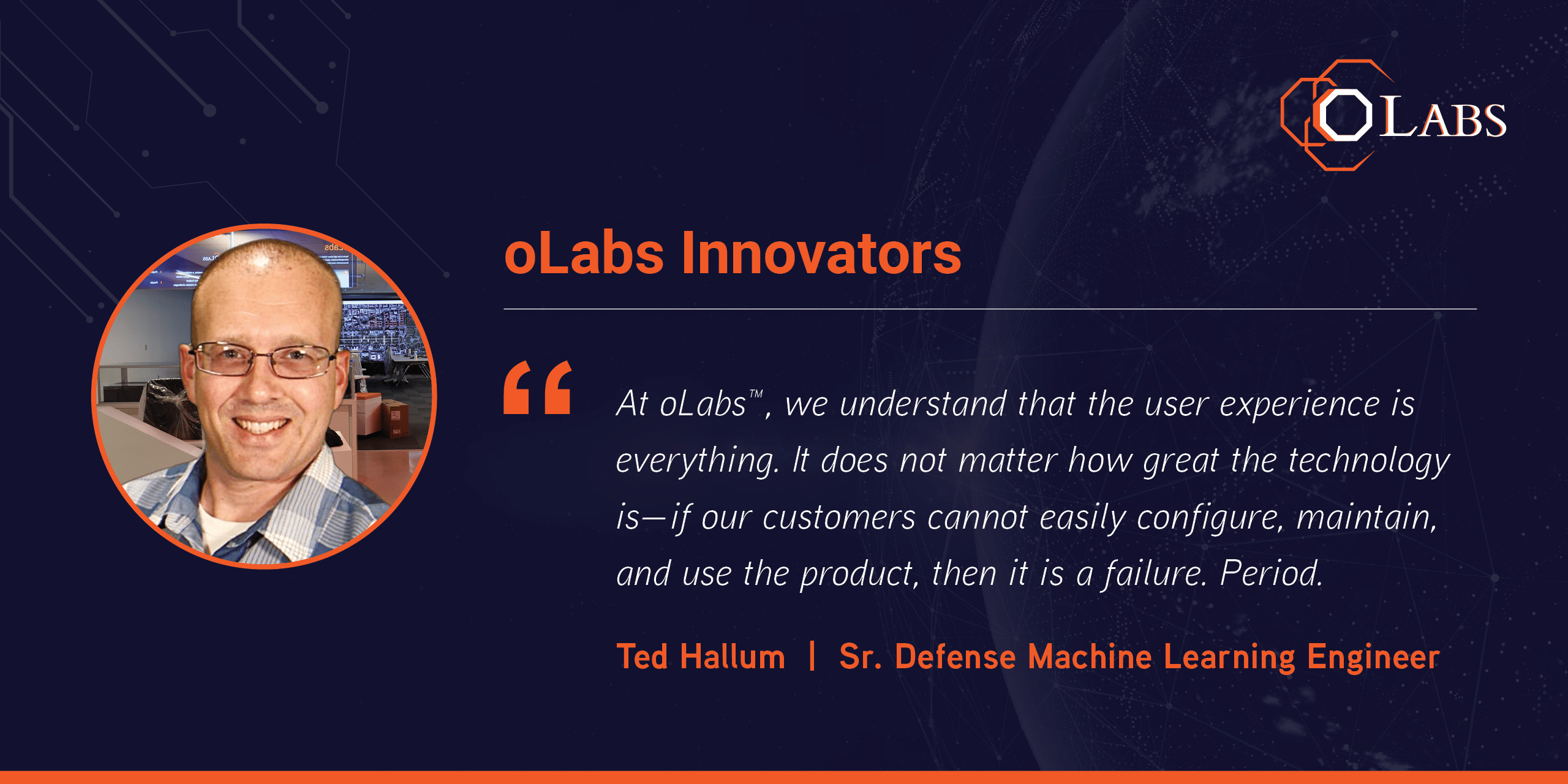
Welcome back to Meet the Innovators, where we shine a light on the experts who make things happen for our customers. Today, we feature Ted Hallum, Senior Defense Machine Learning (ML) Engineer. Ted has been with Octo since January 2021 and supports our oLabs™ Artificial Intelligence (AI) Center of Excellence (CoE).
Ted, welcome to the series. Please tell us how you would describe the ML/AI challenges you tackle on a daily basis.
As someone who enjoys learning and problem solving, my work within the AI CoE is both fascinating and fulfilling. Every day I get to work on solving new challenging problems. These problems demand creative and novel approaches. So, each day at oLabs presents new opportunities to grow the depth and breadth of my data science and machine learning expertise.
One of oLabs’ flagship offerings is our full-spectrum MLOps platform, Hatteras™. Hatteras services all phases of the MLOps life cycle, including model development, deployment, monitoring (drift/adversarial attacks), and remediation when drift is detected. I focus on the platform’s data science, statistical, & algorithm-related research, development, and implementation. My most significant contribution to Hatteras is in the area of combatting model decay by researching/prototyping various drift and streaming outlier detection methods.
Considering that Octo’s target customer base for Hatteras is the full breadth of the U.S. Federal Government, the platform’s approach to combatting model decay needed to be robust, efficient, “just work” with zero user configuration, and capable of accommodating all types of ML modeling tasks. I was able to design a drift detection method meeting these requirements through the use of first-principles thinking — one of the best ways to reverse-engineer complicated problems and unleash creative innovation. Sometimes called “reasoning from first principles,” the idea is to break down complicated problems into basic elements and then reassemble them from the ground up.
When you think of the word “innovation” in terms of your work, what comes to mind and why?
From my experience, innovation is what happens when you are asked to take the “impossible” and make it possible. In many cases, we are biased to think certain things are not possible because they have never been done before or because we cannot initially see a clear path forward, but in most cases these biases are incorrect. Again, first-principles thinking is key. Strip everything back and start building from the most basic components. This process produces “aha moments” — breakthroughs — and then the “impossible” is no longer impossible. This is what we do every day in oLabs.
At Octo, we say we help customers “jump the technology curve.” How does your work contribute to that effort?
Companies are often content to sell powerful technology…that comes packaged with unacceptable levels of end user complexity. At oLabs, we understand that the user experience is everything. It does not matter how great the technology is — if our customers cannot easily configure, maintain, and use the product, then it is a failure. Period. That is why one of our core objectives with every product is to engineer powerful and complex technologies that, from the customer’s standpoint, feel magical in their simplicity. That is how we help our customers jump the technology curve.
What advice would you give to someone just starting out in ML/AI engineering?
This field changes fast. Stay hungry. Never stop learning and growing. At the same time, never forget the Pareto principle, that 80% of your outcomes will be derived from about 20% of your work. Focus on the 20% that really matters. In our field, that means employing data-centric approaches to build user-friendly solutions that add real mission and business value. For us, these are the basics. That’s what the Pareto principle does. It drives you to always keep sharp on the basics. The basics will save you time and again.
Are you seeking a career where innovation and problem-solving take center stage? Have a look at Octo’s Careers page. We’re hiring creative technologists and support staff at every level, and you’ll work with experts like Ted who are committed to making missions happen. Veterans, start your search here.


